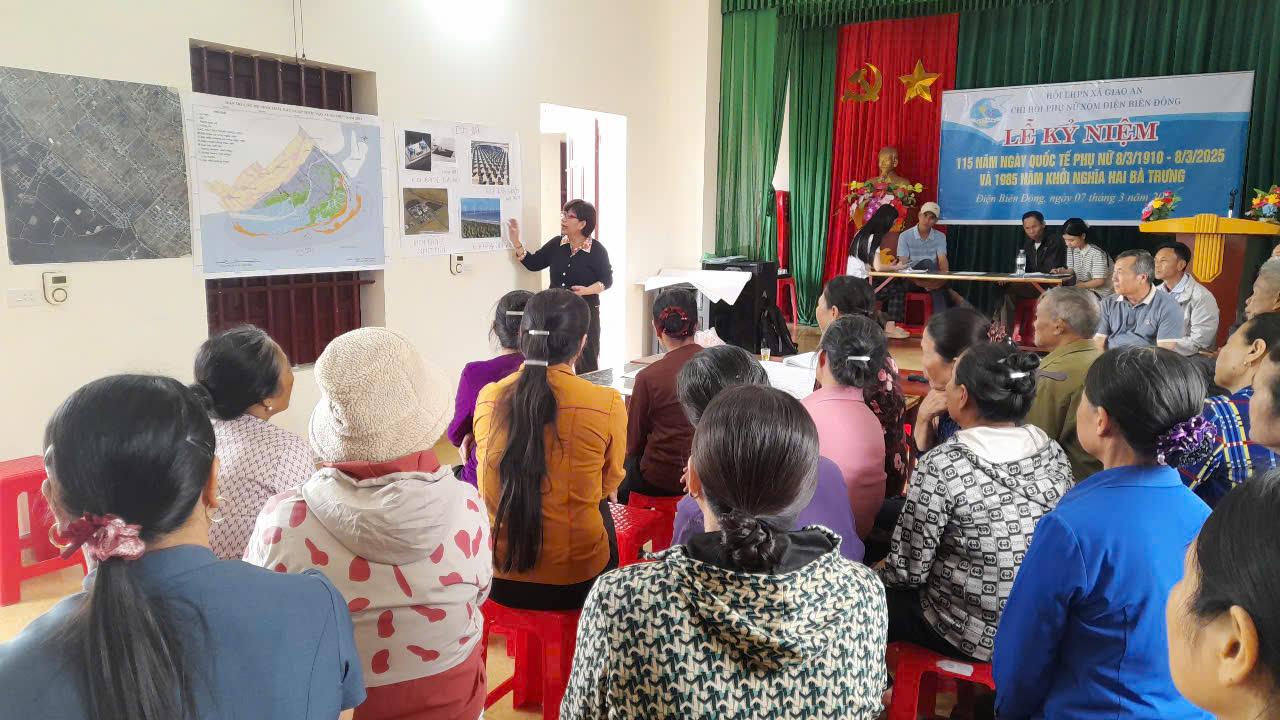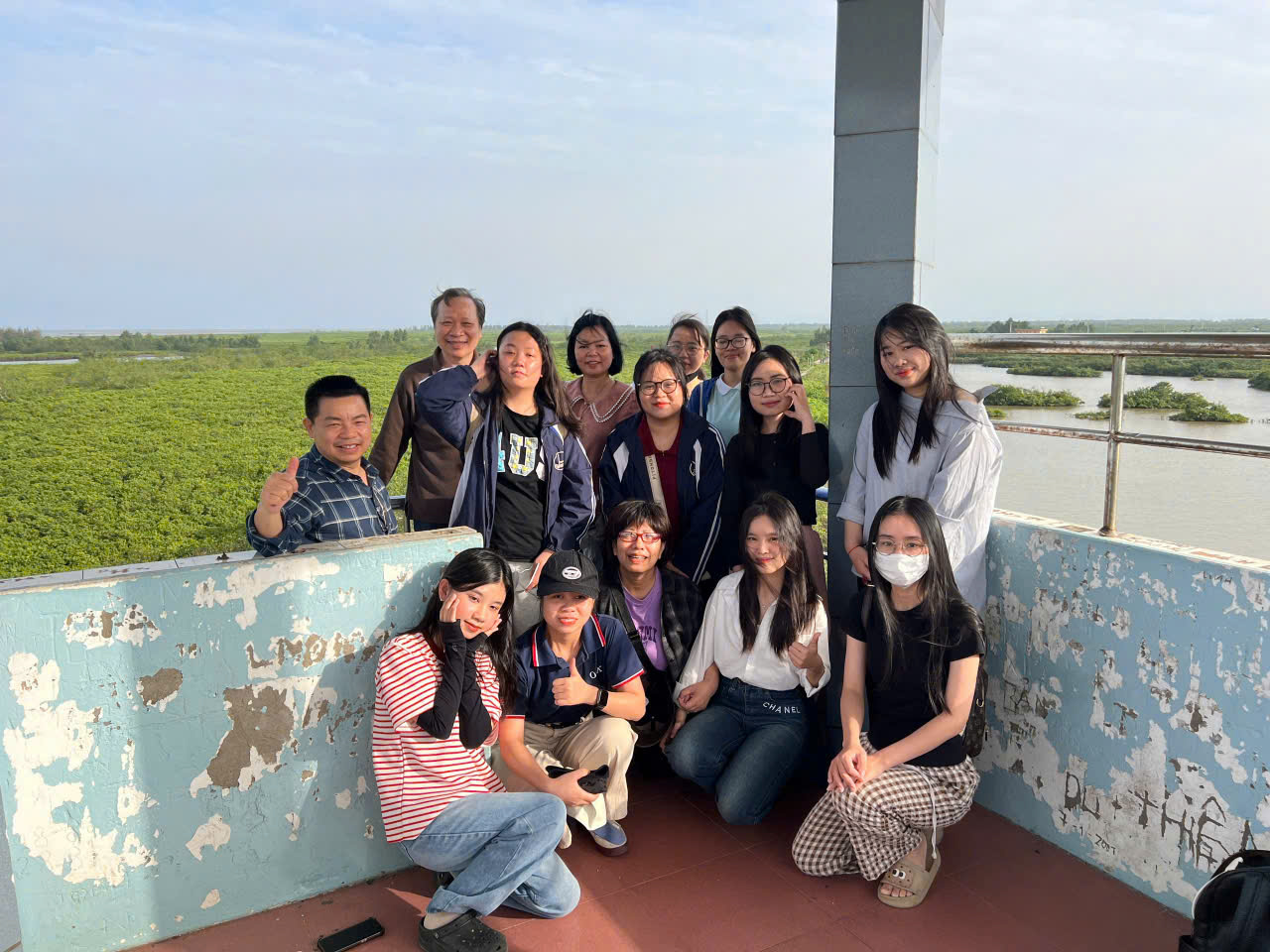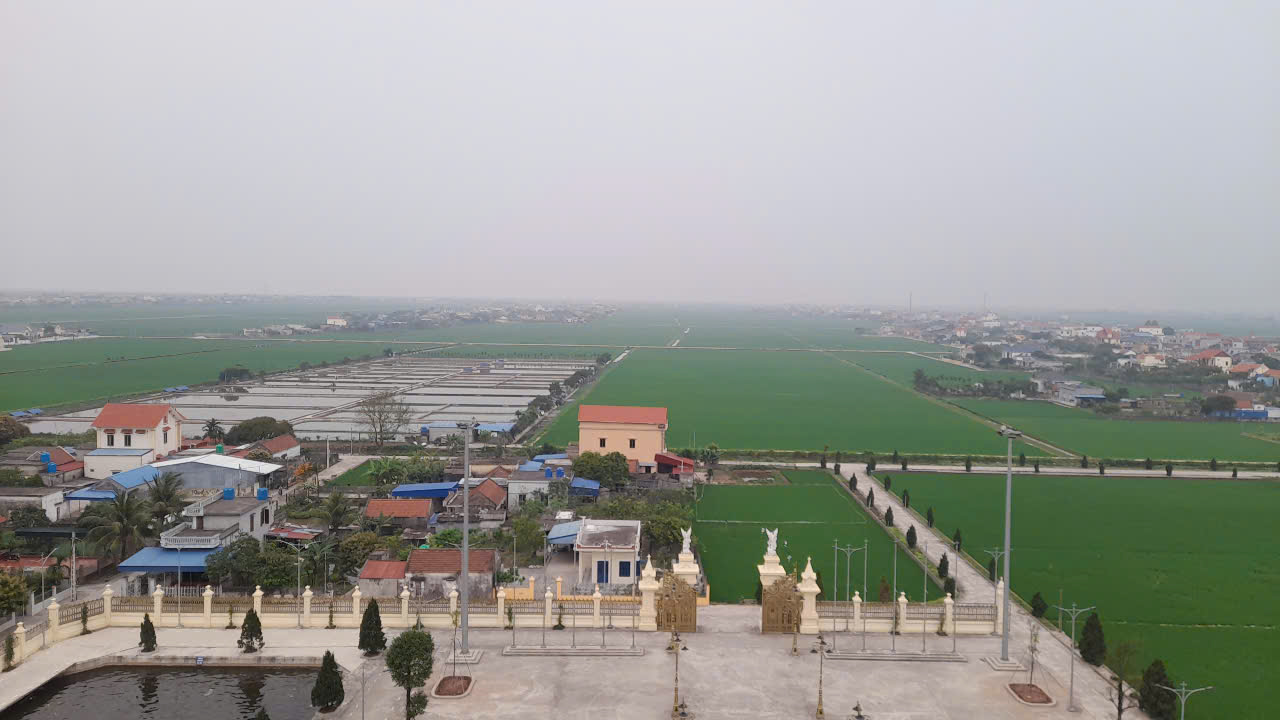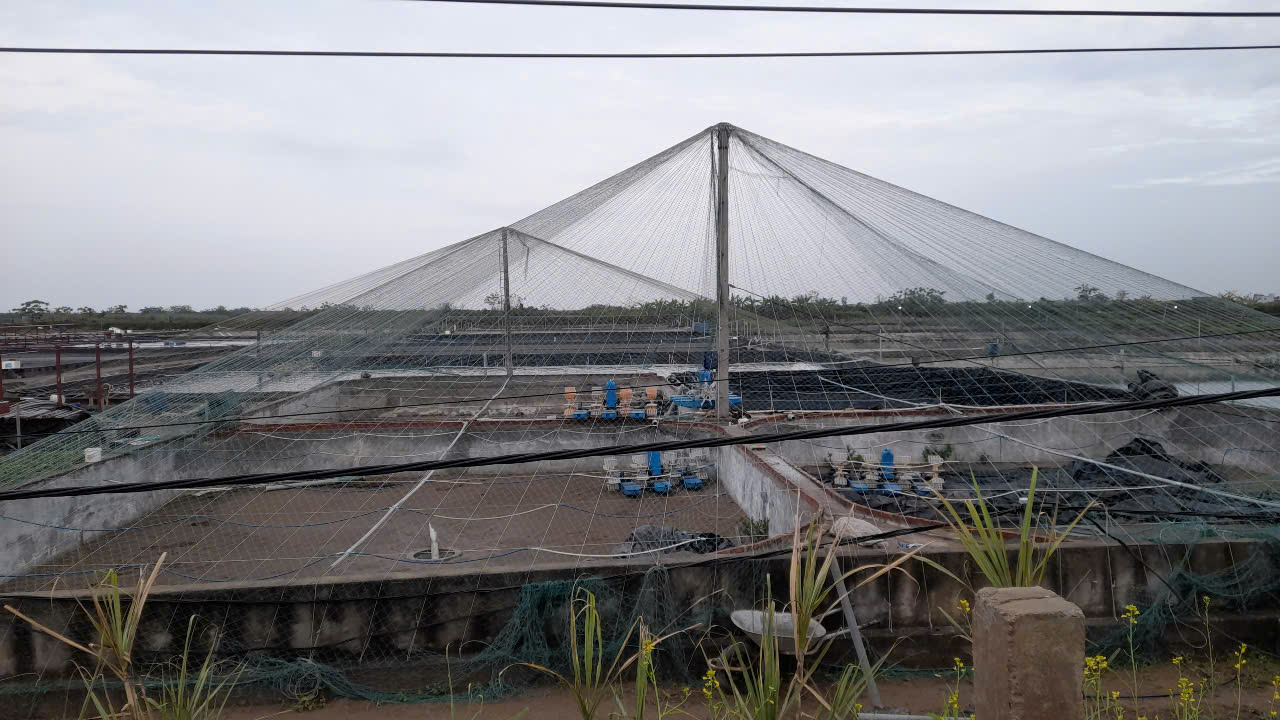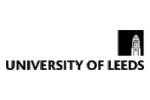From April 8-15, 2025, the Central Institute of Natural Resources and Environment Studies – VNU Hanoi organized a field survey in 5 communes in the buffer zone of Xuan Thuy National Park (Nam Dinh province) within the framework of the project “Sustainable energy and environmental transition”, funded by the French Development Agency (Agence Française de Développement – AFD) through Expertise France.
The trip aimed to learn about the current status of energy use, awareness of social and environmental challenges, and opportunities in sustainable energy development, towards the goal of achieving Net Zero by 2050—a substantial commitment by Vietnam at COP26.
The research team, led by Dr. Nghiem Thi Phuong Tuyen, collaborated with provincial departments and agencies, including the Department of Environmental Protection, the Office of Forestry, the Office of Marine and Mineral Resources, and the Office of Planning and Finance, under the Department of Agriculture and Environment of Nam Dinh Province.
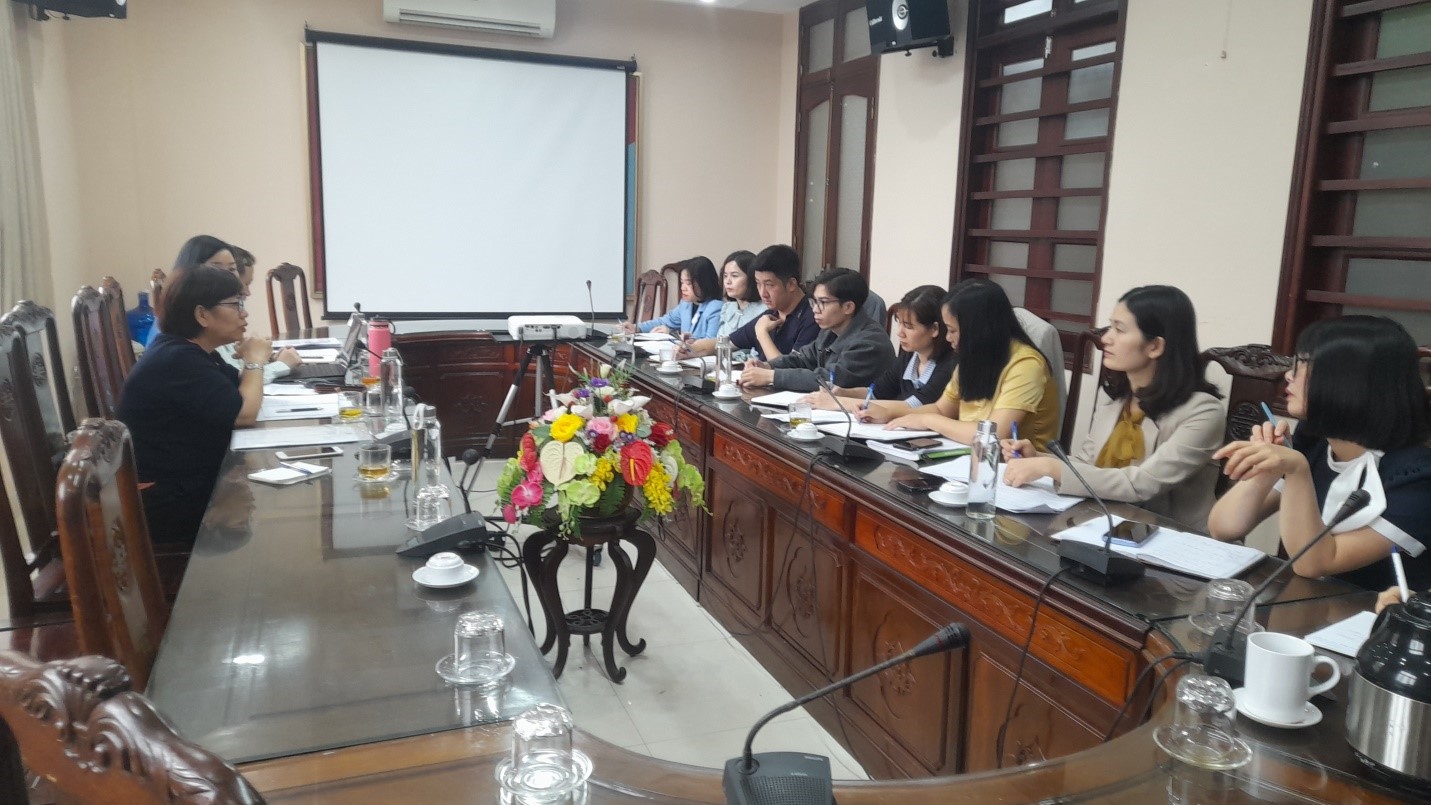
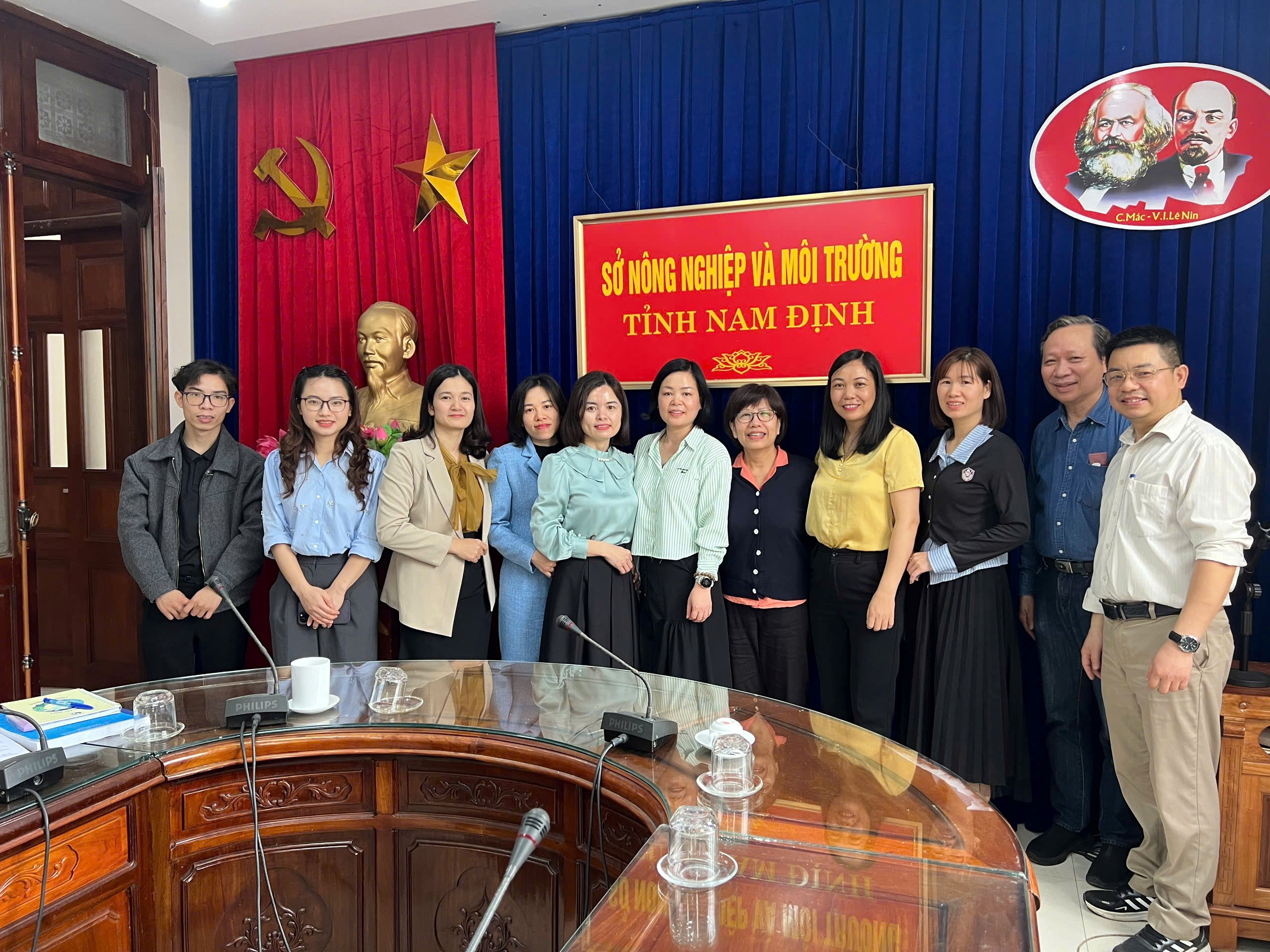
Pics 1 and 2: Exchange of opinions on energy development orientation and potential impacts of this process on the environment with officials of the Department of Agriculture and Environment of Nam Dinh province
At the commune level, the delegation coordinated with local authorities to conduct surveys in 5 buffer zone communes: Giao Hai, Giao An, Giao Lac, Giao Xuan and Giao Thien. The delegation conducted group discussions with 150 representatives of organisations and households in the community and interviewed 300 households.
Initial results indicate that people in the buffer zone communes of Xuan Thuy National Park primarily use a combination of electricity and gas. Only a very small number of households use solar panels for daily activities, and a few households apply this energy source for shrimp farming. Access to clean energy still faces many financial, technical and cognitive barriers. However, the majority of people said they are willing to change if they are supported to access suitable models that are economically beneficial and easy to apply.
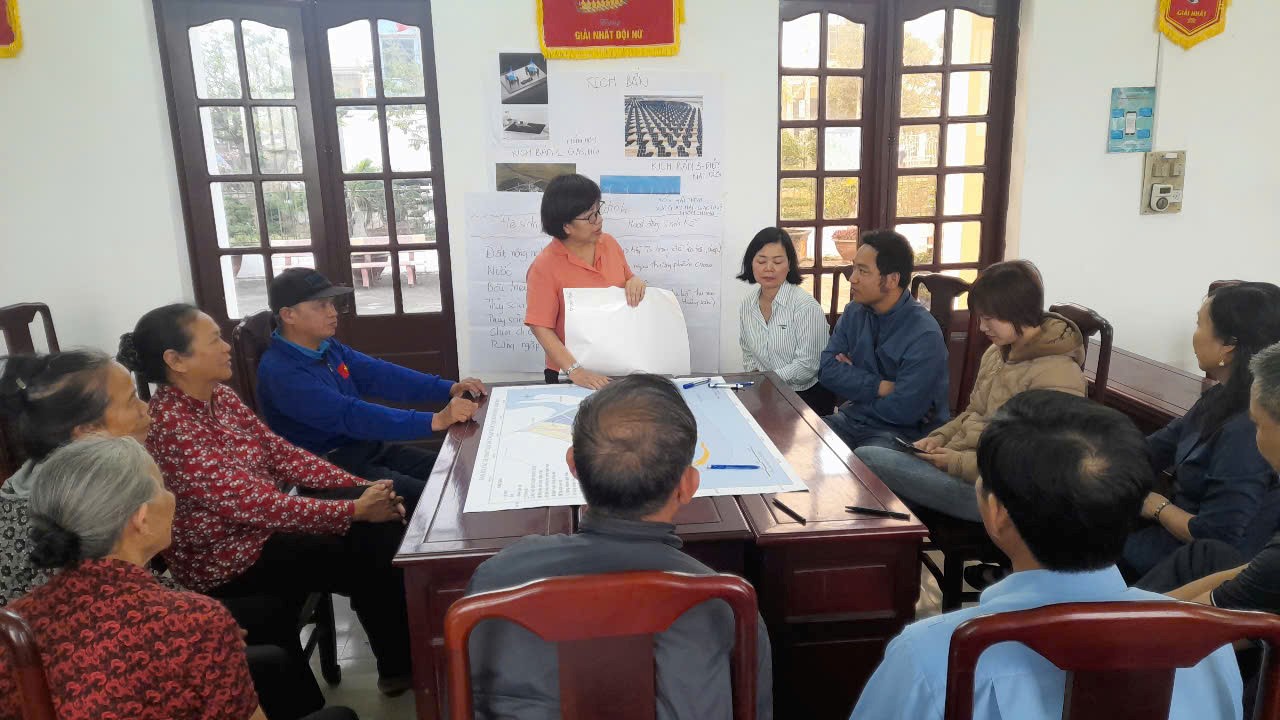
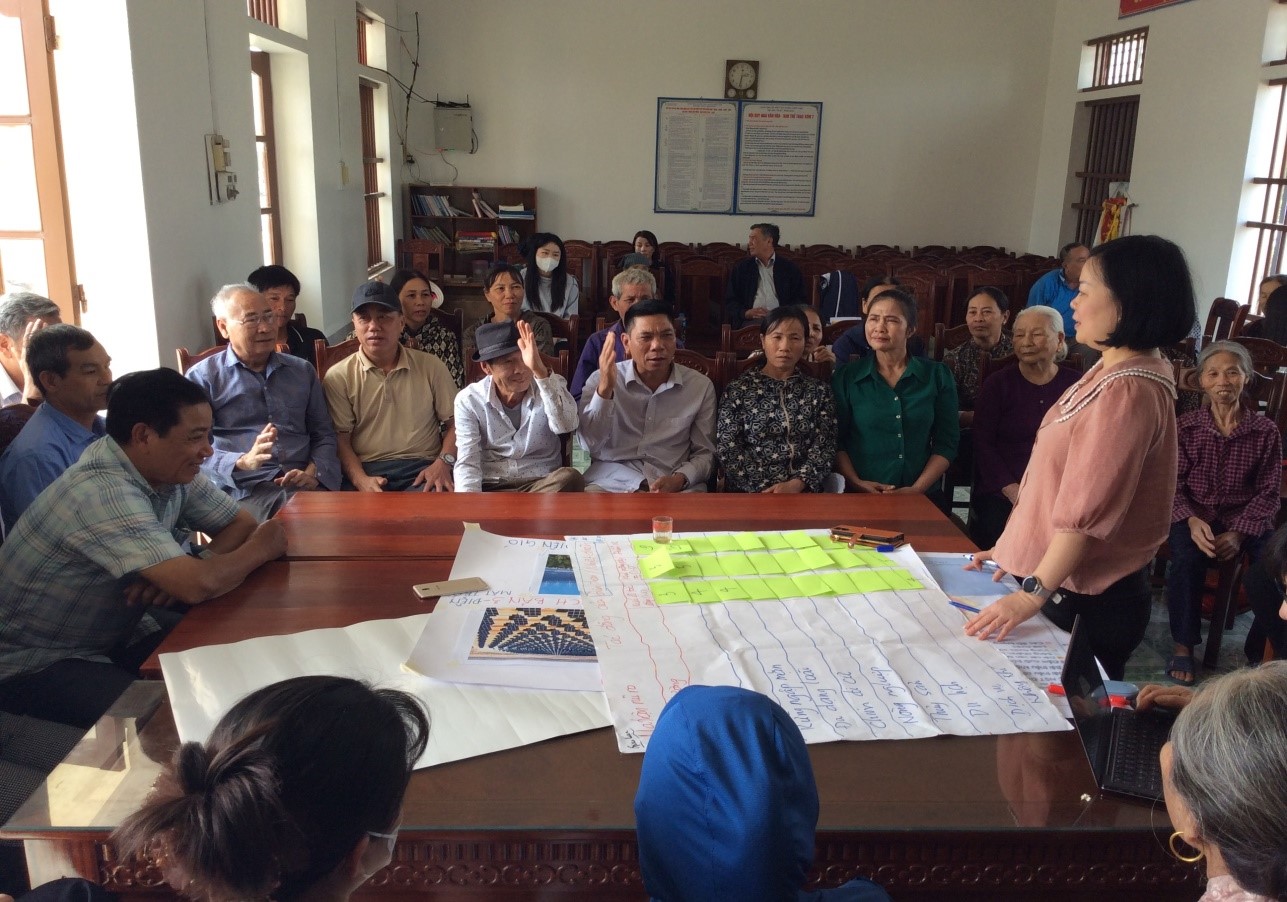
Pics 3 and 4: Community group discussion on changes in energy use, potential impacts of four energy scenarios on local ecosystems and ecosystem services
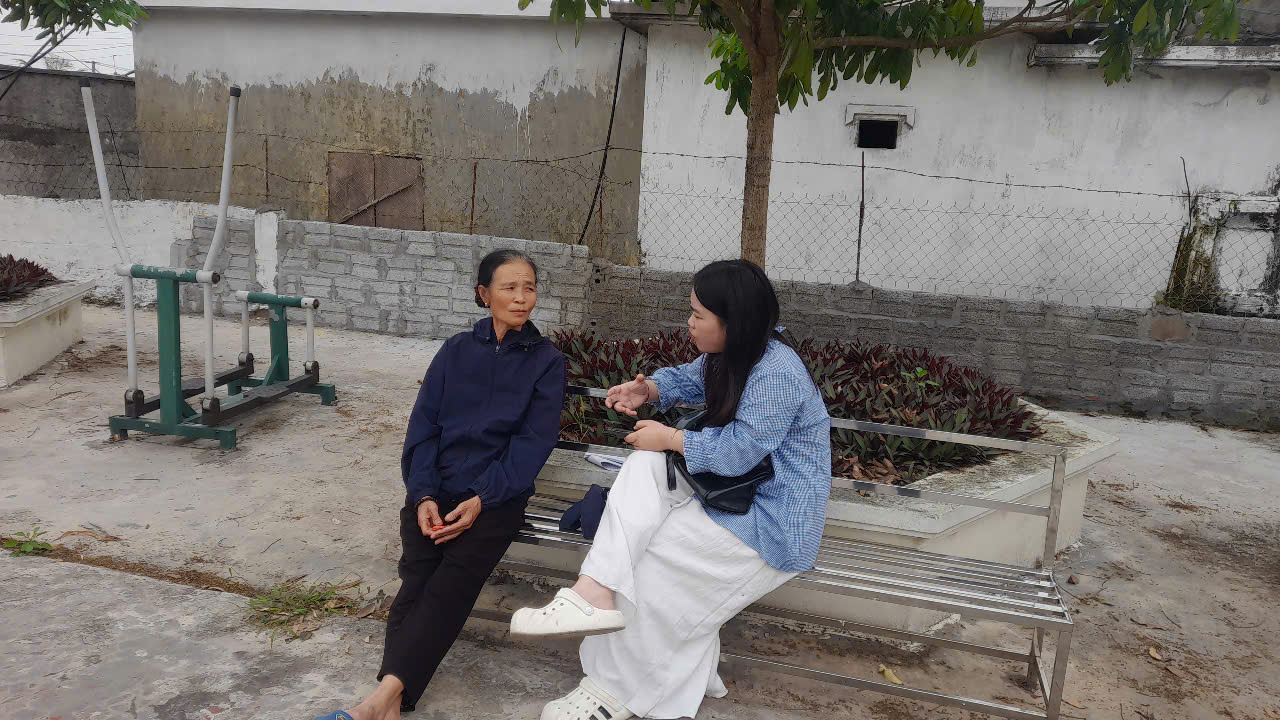
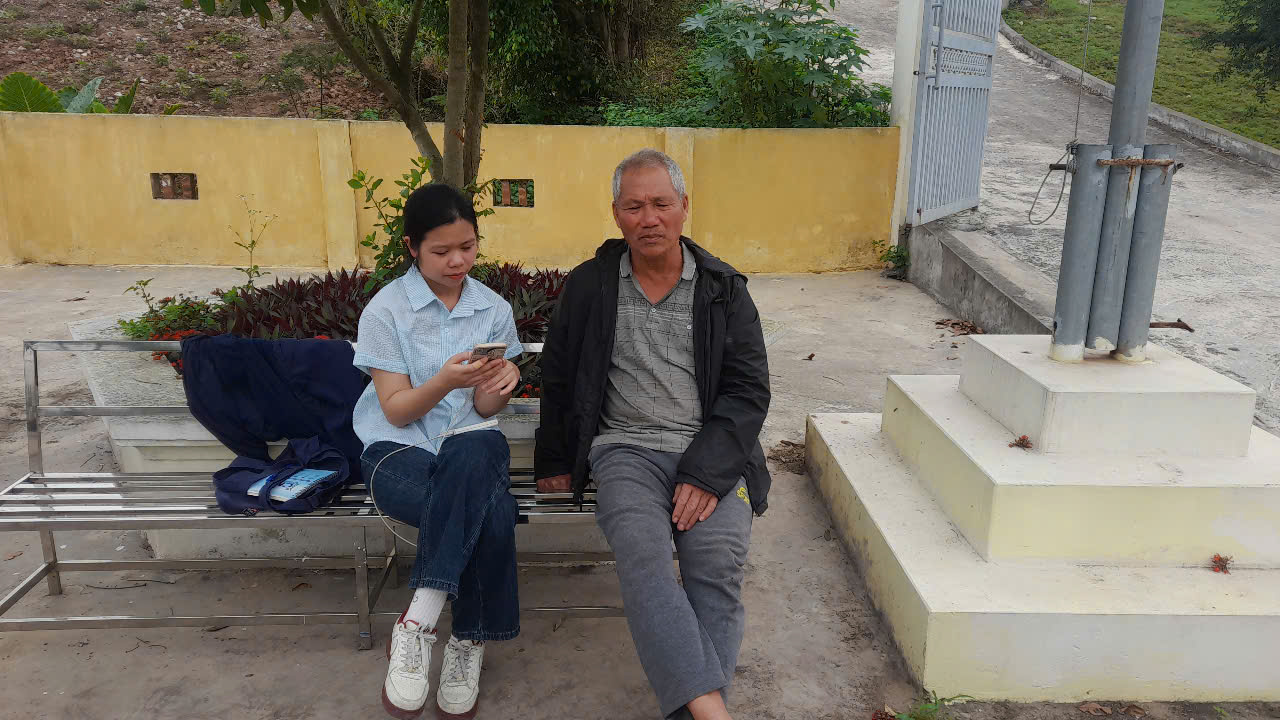
Pics 5 and 6: Individual and household survey
The research team will use the survey results to analyse public perceptions of the social and environmental challenges and opportunities in the expansion of renewable energy production, to promote a sustainable energy transition while ensuring livelihoods and protecting the environment.
Additional images captured from the survey:
